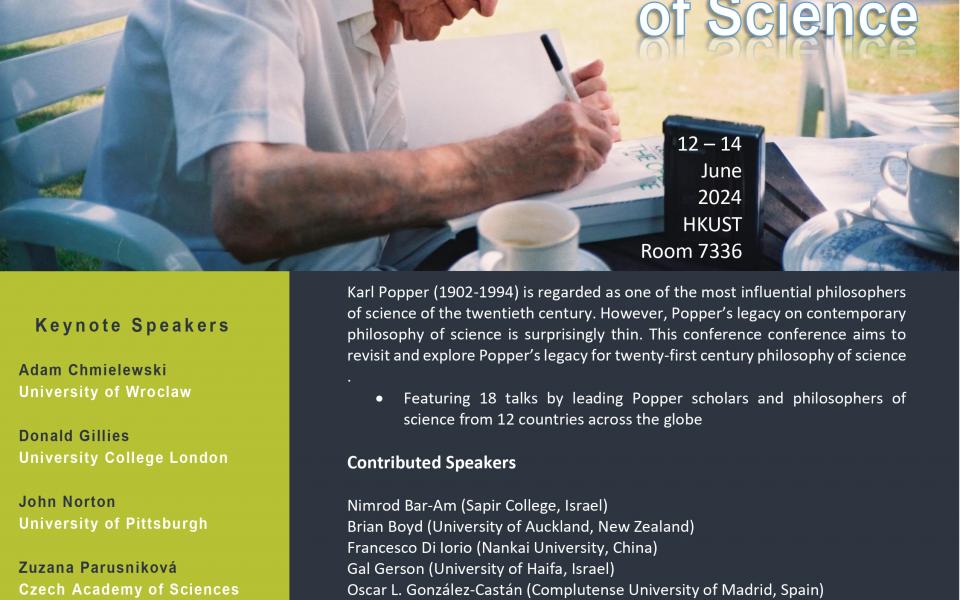Karl Popper and 21st Century Philosophy of Science
Karl Popper (1902-1994) is regarded as one of the most influential philosophers of science of the twentieth century. He famously proposed that falsifiability is the genuine virtue of science and the criterion of the scientific status of a theory. Based on this, he developed a systematic account of scientific method and scientific development, namely, falsificationism. In addition, Popper played an important role in promoting the historical turn in twentieth century philosophy of science. The debate over the nature and development of science between him and Thomas Kuhn dominated and sparked many discussions in the late 1960s philosophy of science. Moreover, Popper wrote on a variety of topics, including evolutionary biology, methodological individualism, and probability. However, Popper’s legacy on contemporary philosophy of science is surprisingly thin. Although his writings are still a must-read in any introductory philosophy of science course, there is no lively Popperian philosophy of science. His falsificationism is not viewed as a plausible account of scientific development. Nor is his solution to the problem of induction regarded as a successful or promising move. This conference conference aims to revisit and explore Popper’s legacy for twenty-first century philosophy of science.
